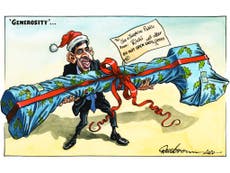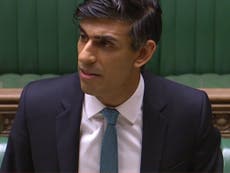Most people pay little attention to economics statistics, but they remember the bad ones
A report has found the public struggles with economic data and that creates a problem for the government, writes James Moore


That the British public doesn’t really trust economic stats and people often get frustrated by them might be a statement of the bleedin’ obvious but the Economic Statistics Centre of Excellence (ESCE) has, I think, nonetheless done us a service by turning the spotlight on the issue.
Economics is currently a very big deal and it is going to remain so. As the chancellor stated during his latest mini-budget, the Covid crisis has morphed into an economic crisis and we’re only at the beginning of it. Those of us involved in communicating the issue need to raise our game.
What the chancellor did not say was that Brexit will inevitably contribute to it by making it worse, especially if, as is looking increasingly likely again, Boris Johnson lands a no deal on the nation’s head.
One of the problems with explaining the impact of Brexit, deal or no deal, or just economic data generally, is that the numbers that get quoted frequently have very little relevance to people’s everyday lives.
Take GDP. Britain enjoyed a long spell of uninterrupted growth, 10 years of it in fact, following the downturn caused by the financial crisis. Austerity meant the economic growth was a lot slower than it might have been. But it still grew, consistently, quarter on quarter. Philip Hammond made a big fuss about it when he was delivering the budgets Sunak is now in charge of.
Trouble is, people didn’t feel it. This was, partly as a result of said austerity, partly down to a long spell when income growth undershot inflation. It led TUC director general Frances O’Grady to declare that “Britain needs a pay rise”. Justifiably so.
The ESCE’s report found “some pockets of public economic expertise, in which many people were fairly well-informed, often driven by perceived relevance to their everyday lives and personal finances”.
These included the inflation rate, and the linked data on wage growth. Researchers found a good understanding of the latter in “real terms” even if the people who attended its focus groups didn’t tend to use the term.
Clearly it’s important to improve understanding of concepts beyond the limited number of personal ones not least because it would give voters a better means of assessing government performance.
However, the economy, thanks to the crisis mentioned by Sunak, has become very personal and will continue to be so. The researchers found some scepticism about the way, say, unemployment data is collected leading to “the commonly held view that actual unemployment rates are higher than official figures suggest”.
Nonetheless, it is undeniably true that unemployment is now rising, and fast, and it’s something people will probably be able to touch and taste even if it doesn’t affect them directly because it may very well affect friends and family.
I got a jolt this week when I tried to contact an old friend working for an economics consultancy only to find they were now unhappily part of a surge of bad economic data.
The issue of income vs inflation for those still in work is also going to roar back because of pay freezes in both the private and now the public sector, the latter thanks to Sunak playing Mr Mean at Christmas.
So is sterling. It’s usually holidays when people pay attention to that but a crashing currency caused by Brexit will deliver inflation, which people will feel keenly. Will it be sufficient to persuade the Bank of England to increase rates (which people also feel)? Let’s not get ahead of ourselves. But Sunak clearly has cause for concern.
The Resolution Foundation says the Covid crisis is causing “immense damages to the public finances and household finances too”. It is on track to reduce average pay packets by £1,200 a year by 2025. There’s another economic stat that will be very real to people if the forecast proves accurate.
Much of the pain is yet to be felt. It’s been cushioned by support such as the Job Retention Scheme and other emergency measures. But the latter is due to come to an end in March. The Covid bump to Universal Credit is also expected to be withdrawn next year.
“The pandemic is just the latest of three ‘once in a lifetime’ economic shocks the UK experienced in a little over a decade, following the financial crisis and Brexit. The result is an unprecedented 15-year living standards squeeze,” said Resolution Foundation boss Torsten Bell.
The squeeze isn’t over. It may be exacerbated by tax rises to pay for all the borrowing Sunak has had to engage in.
His problem is that even if the economy starts to motor next year, and he’s able to talk about 5 per cent growth, and a faster recovery than this or that country in Europe, it’s not a stat people will feel in the way they’ll feel rising unemployment and a fresh income squeeze.



Join our commenting forum
Join thought-provoking conversations, follow other Independent readers and see their replies
Comments